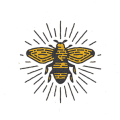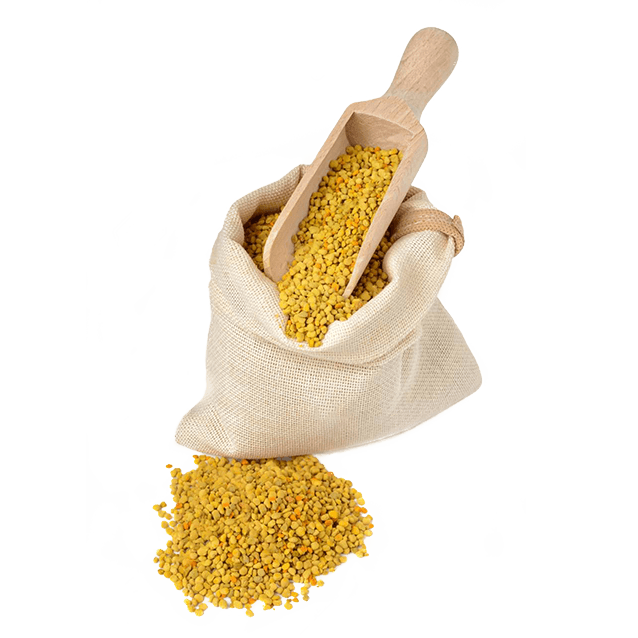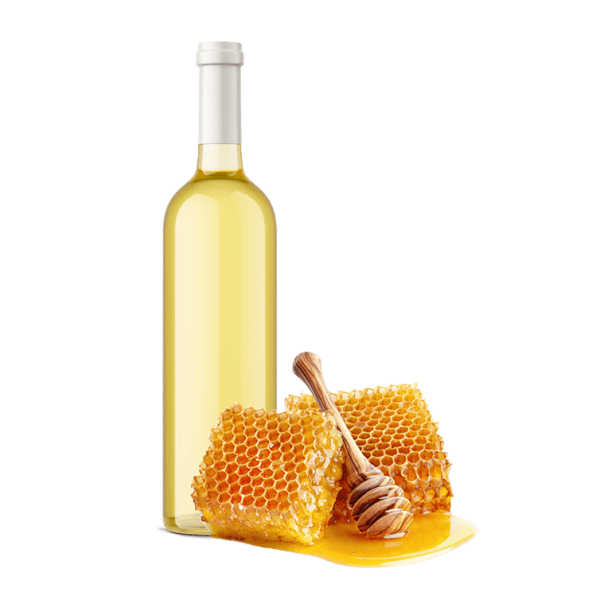Pollen is found in flowering plants and bees collect it while they’re searching for nectar. Plants produce it for reproduction purposes. It is a fine powder that is collected by bees as an essential nutrient: the flour-like pollen adheres to their hair and eventually they deliver it to the hive.
Pollen is a food that contains all the necessary nutrients except crude fiber.
Its main value is the amino acids. 20 of the 22 known amino acids are present. This bee product contains the most vitamins and plenty of hormones and enzymes. At least 20 minerals are present in varying proportions, depending on the species of plant and the conditions where the pollen was taken.
It can be very beneficial for a depleted, weakened, recovering body.
- Regular consumption constantly ensures the body's resilience and performance..
- It has a good effect on the blood count, helps to maintain attention and memory.
- It is used effectively in natural medicine for various old age diseases (liver damage, prostate cancer, circulatory and blood supply disorders, radiation treatments).
- It can be used well against deficiency symptoms and hormonal diseases. Significant tryptophan content may reduce hair loss.
All of these require treatment over a longer period, preferably 2-3 months. On the other hand, its effect on sexual activity is present in both men and women in a short period of time due to its free amino acids and hormone content.

It is recommended to take a minimum of one month cure 3-4 times a year.
It is recommended to take it on an empty stomach, half an hour before a meal. If possible, consume it with honey: pollen is protected by a strong membrane, which is difficult to digest by stomach acid, but the acidity of honey helps to dissolve this crust. The protein in bee pollen is harder to digest than other sources of protein.
Recommended daily dose:
- Adults: 15 grams
- For children: 5 grams














Reviews
There are no reviews yet.